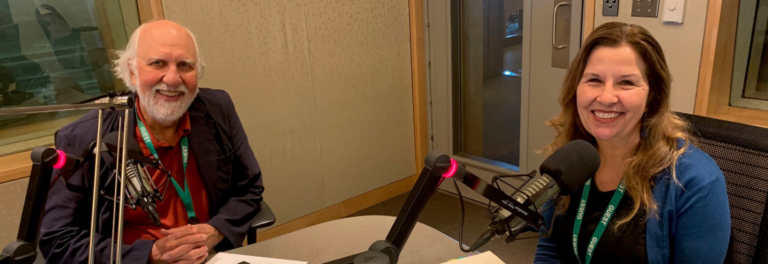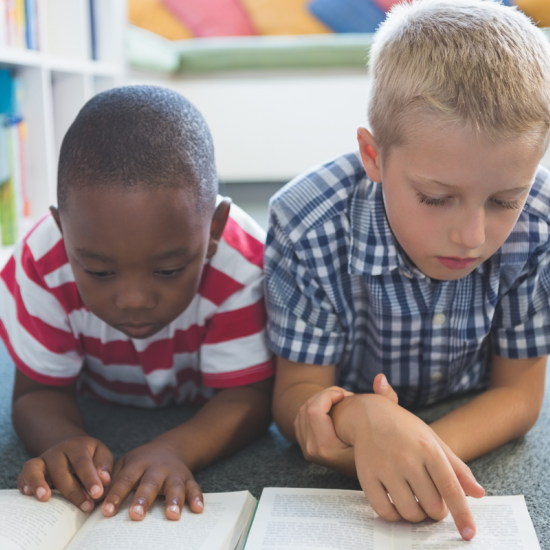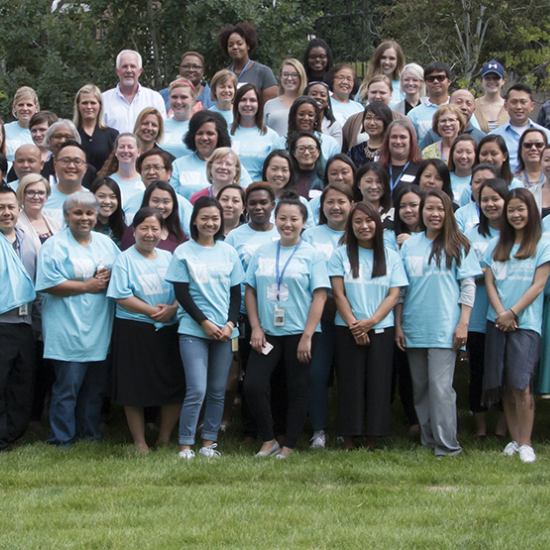Thank you to everyone who attended our very first Wilder Conversations event last night. This very moving presentation illuminated many of the challenges faced by low-income children in Saint Paul—and everywhere.
In case you missed it, here’s Ronnie’s Story:
Suspended from school for punching a fellow student, Ronnie and his mother received referrals to Wilder’s Child Guidance Clinic and Project Kofi. When she called for an appointment, Ronnie’s mother was concerned about the cost. She could barely believe it when she heard, “come anyway.”
Ronnie’s therapist worked slowly, building trust and understanding with him and his mother. It was not easy, but over time, he learned to attach words to his feelings: hurt, pain, anger, and grief.
Diagnosed with post-traumatic stress disorder (PTSD) and attention deficit/hyperactivity disorder (ADHD) by Wilder’s pediatric psychiatrist, he received medication that helped him manage his impulses. At school, his involvement in Project Kofi with other African-American boys planted seeds of self-confidence and cultural affirmation.
After years of trauma and months of therapy and Kofi group meetings, Ronnie began to feel hope.
When his father went away to prison, Ronnie thought fighting would help him earn respect. Today, he has strategies that help him cope, even when he’s stressed out. He respects his mother, who is working hard at her own therapy and addiction treatment. And he’s more responsible—household chores and homework come first—before basketball or video games.
Over the next few weeks, we will be posting regularly about children’s mental health—and sharing several ways you can make a personal impact on young people in our community with mental health disorders.
We hope you’ll join in the discussion in the comments section below.
While last night’s presentation shared two families’ stories, I’d like to take the time today to broadly look at the challenges faced by children right here in Saint Paul and the East Metro.
Wilder Research (2004) estimated that 6,000 children and youth in Ramsey County have severe difficulties functioning home, at school, and in the community.
But there is hope for children (and adults) suffering with mental health disorders: Treatment works. The National Alliance on Mental Illness (NAMI) reports, “With treatment, between 70 and 90 percent of individuals [can improve their] quality of life.”
What works for severely troubled youth?
- Focus not only on problems, but also build on strengths
- Address behavior in multiple contexts, at home, at school, and in the community
- Provide follow-up support
- Integrate cultural factors into treatment
How can I help?
- Thanks to the generosity of Wilder donors, more than 1,000 children each year in Saint Paul and the East Metro have access to high quality mental health services—in locations convenient to them—at school, in their homes, and at our Child Guidance Clinic.
- Access to care is a problem for many low-income families. Though many find help at Wilder, many more who need help do not receive it. Look for a future blog post on how you can help ease access to mental health treatment for youth in Saint Paul and throughout Minnesota.
- Get involved as a volunteer.
- Help us keep the discussion going. If you attended the Wilder Conversations event: what did you learn? What surprised you?
Thanks again for reading. Together, we can reduce disparities in children’s mental health.
Jill Petsel is Wilder’s Vice President of Development. She leads efforts to share Wilder’s mission and vision and build relationships with donors and prospective donors.





